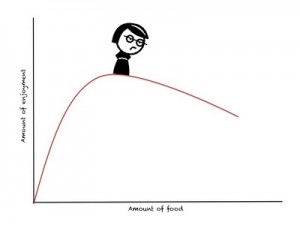I need to catch up on my HR/Sports related posts! My teammates over at the 8 Man Rotation are probably feeling like I’m not pulling my weight lately, and what better way to get back in their good graces but to throw out a Tebow post!
So, the big news from John Elway over at the Denver Bronco’s camp is that Tim Tebow has earned the right to be called the starting quarterback going into next season’s Training Camp. Basically, that means that during off-season conditioning Mr. Elway is not going to allow any other quarterback to beat out Tebow – Oh! Thanks for the vote of confidence Mr. Elway! I’m not surprised by Elway’s announcement. What I’m surprised about, and probably shouldn’t be, was by Tim Tebow’s response:
“Nice,” Tebow said of Elway’s pledge of support. “It’s a great honor to be a quarterback for the Denver Broncos. I take that very seriously. I’m very excited about this offseason and I can’t wait to get to work and get better.”
He couldn’t have been coached better by a team of PR specialist to respond this way!
Look, Tebow gets that Elway’s endorsement, was really a partial non-endorsement – and he had a choice on how to react, and took the higher road. He responded in the way we would like anyone of our employees to respond when put in a similar situation, and believe me, we put our employees in these situations! We constantly have hiring managers deliver performance and succession messages to employees that sound very similar to what Elway gave Tebow:
“Mary, keep doing what you’re doing and good things will happen.”
“Bob, you control what you can control and it will all work out.”
“Gayle, with hard work, you can go as far as you want in this organization.”
“Ray, the only person who is going to stop you, is you.”
This is the classic performance management response/non-response – and we allow this to happen to often – but more amazingly than how much we allow this to happen, is how upset we get with our employees when they become frustrated with this non-feedback, and don’t give us a “Tebow” response!
Tebow is a winner in life because he understands the art of communication. He understands that, while he has a huge platform on which to speak, using it as a weapon will get neither himself or his organization any closer to their final goal. Elway screwed up – he should have been honest – “We’ll give Tim every opportunity to compete to be the starting QB of the Denver Bronco’s next season. We will work this off-season with Tim to make him the best possible QB for our ororganization.” Period. Shut up, no further questions. Tim showed the organization how to communicate – be humble, be appreciative and be gracious – you will come out a winner every single time!


